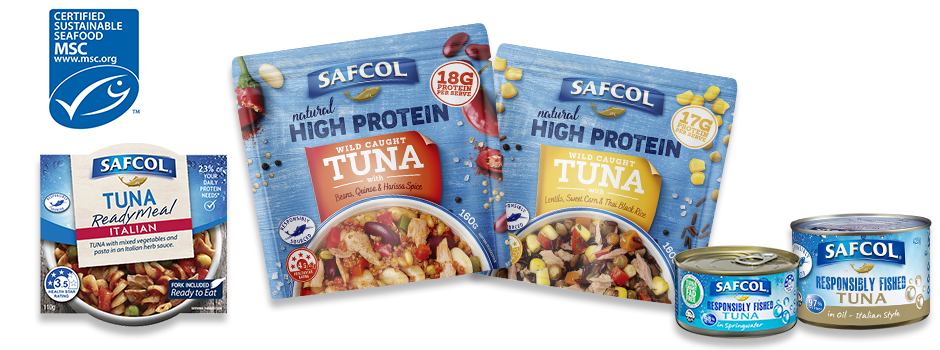by Ashleigh Feltham
Accredited Practising Dietitian and Accredited Nutritionist
 Migraines are the result of a disorder occurring in the nervous system. The Mayo Clinic defines a migraine as ‘a headache that can cause severe throbbing pain or a pulsing sensation, usually on one side of the head. It’s often accompanied by nausea, vomiting, and extreme sensitivity to light and sound. Migraine attacks can last for hours to days, and the pain can be so severe that it interferes with your daily activities.’
Migraines are the result of a disorder occurring in the nervous system. The Mayo Clinic defines a migraine as ‘a headache that can cause severe throbbing pain or a pulsing sensation, usually on one side of the head. It’s often accompanied by nausea, vomiting, and extreme sensitivity to light and sound. Migraine attacks can last for hours to days, and the pain can be so severe that it interferes with your daily activities.’
Omega-3 and omega-6 fats are essential fatty acids that your body needs to function at its best. Neither is bad, but problems begin when there is too much of one type of fat compared to the other. Both of these fats play opposite roles in your body.
There is no universally recommended ratio of omega-3 to omega-6 fats. However, several sources recommend a ratio of 1:1. In comparison, the average western diet is made up of a ratio of around 16:1 of omega-6 to omega-3 fats.
When there is too much omega-6 in the diet, the risk of disease increases, such as heart disease, autoimmune diseases, certain cancers and chronic inflammation. Research suggests that the quality of life of migraine sufferers increases when their diets include a more balanced ratio of omega-3 to omega-6.
In one study, participants were given 150mg of omega-3 fats each day and reduced omega-6 intake. The results show migraine sufferers had four added migraine-free days each month.
In another study, participants took a daily omega-3 supplement. The results showed reduced migraine duration of, on average, three hours and 26 minutes.
Vitamin D is fat-soluble and serves many functions in the body. Vitamin D allows for the proper absorption of calcium for optimal immune system function. Research suggests that migraine sufferers have lower levels of vitamin D. As a fat-soluble vitamin, excess is stored and not excreted from your body, which is why consuming mega doses of vitamin D is not recommended.
While research uses supplemental forms of omega-3 fats and vitamin D, a whole-food approach is recommended.

Adequate sun exposure increases vitamin D levels. Seafood also contains vitamin D, and the great news for migraine sufferers is that it also contains omega-3 fats. Fatty fish like salmon, herring, mackerel and sardines are great sources of omega-3.
To give your body a good dose of both omega-3 fats and vitamin D, include 100g of cooked seafood two to three times each week.
Take home message
There are many health benefits of maintaining adequate vitamin D and omega-3 levels, ideally through diet. These nutrients boost immunity, heart health and fight inflammation. Migraine sufferers have the added benefit of reduced duration and frequency of migraine headaches.
References:
- Martin VT, Vij B. Diet and Headache: Part 2. Headache. 2016 Oct;56(9):1553-1562. doi: 10.1111/head.12952. PMID: 27699772.
- Hu C, Fan Y, Wu S, Zou Y, Qu X. Vitamin D supplementation for the treatment of migraine: A meta-analysis of randomized controlled studies. Am J Emerg Med. 2021 Dec;50:784-788. doi: 10.1016/j.ajem.2021.07.062. Epub 2021 Aug 11. PMID: 34879503.
- Simopoulos AP. The importance of the ratio of omega-6/omega-3 essential fatty acids. Biomed Pharmacother. 2002 Oct;56(8):365-79. doi: 10.1016/s0753-3322(02)00253-6. PMID: 12442909.
- Puledda F, Messina R, Goadsby PJ. An update on migraine: current understanding and future directions. J Neurol. 2017 Sep;264(9):2031-2039. doi: 10.1007/s00415-017-8434-y. Epub 2017 Mar 20. PMID: 28321564; PMCID: PMC5587613.
- Global Burden of Disease Study 2013 Collaborators Global, regional, and national incidence, prevalence, and years lived with disability for 301 acute and chronic diseases and injuries in 188 countries, 1990–2013: a systematic analysis for the Global Burden of Disease Study 2013. Lancet (Lond, Engl) 2015;386:743–800. doi: 10.1016/S0140-6736(15)60692-4.
- Mayo Clinic.
- Liampas I, Siokas V, Brotis A, Dardiotis E. Vitamin D serum levels in patients with migraine: A meta-analysis. Rev Neurol (Paris). 2020 Sep;176(7-8):560-570. doi: 10.1016/j.neurol.2019.12.008. Epub 2020 Mar 30. PMID: 32241571.
- Maghsoumi-Norouzabad L, Mansoori A, Abed R, Shishehbor F. Effects of omega-3 fatty acids on the frequency, severity, and duration of migraine attacks: A systematic review and meta-analysis of randomized controlled trials. Nutr Neurosci. 2018 Nov;21(9):614-623. doi: 10.1080/1028415X.2017.1344371. Epub 2017 Jun 30. PMID: 28665211.
- Dietary alteration of n-3 and n-6 fatty acids for headache reduction in adults with migraine: randomized controlled trial. Christopher E Ramsden, Daisy Zamora, Keturah R Faurot, Beth MacIntosh, Mark Horowitz, Gregory S Keyes, Zhi-Xin Yuan, Vanessa Miller, Chanee Lynch, Gilson Honvoh, Jinyoung Park, Russell Levy, Anthony F Domenichiello, Angela Johnston, Sharon Majchrzak-Hong, Joseph R Hibbeln, David A Barrow, James Loewke, John M Davis, Andrew Mannes, Olafur S Palsson, Chirayath M Suchindran, Susan A Gaylord, J Douglas Mann. BMJ2021; 374:n1448. doi: https://doi.org/10.1136/bmj.n1448
- Dietary omega 3 fatty acids for migraine. Rebecca Burch. BMJ 2021; 374:n1535.















Comments are closed.